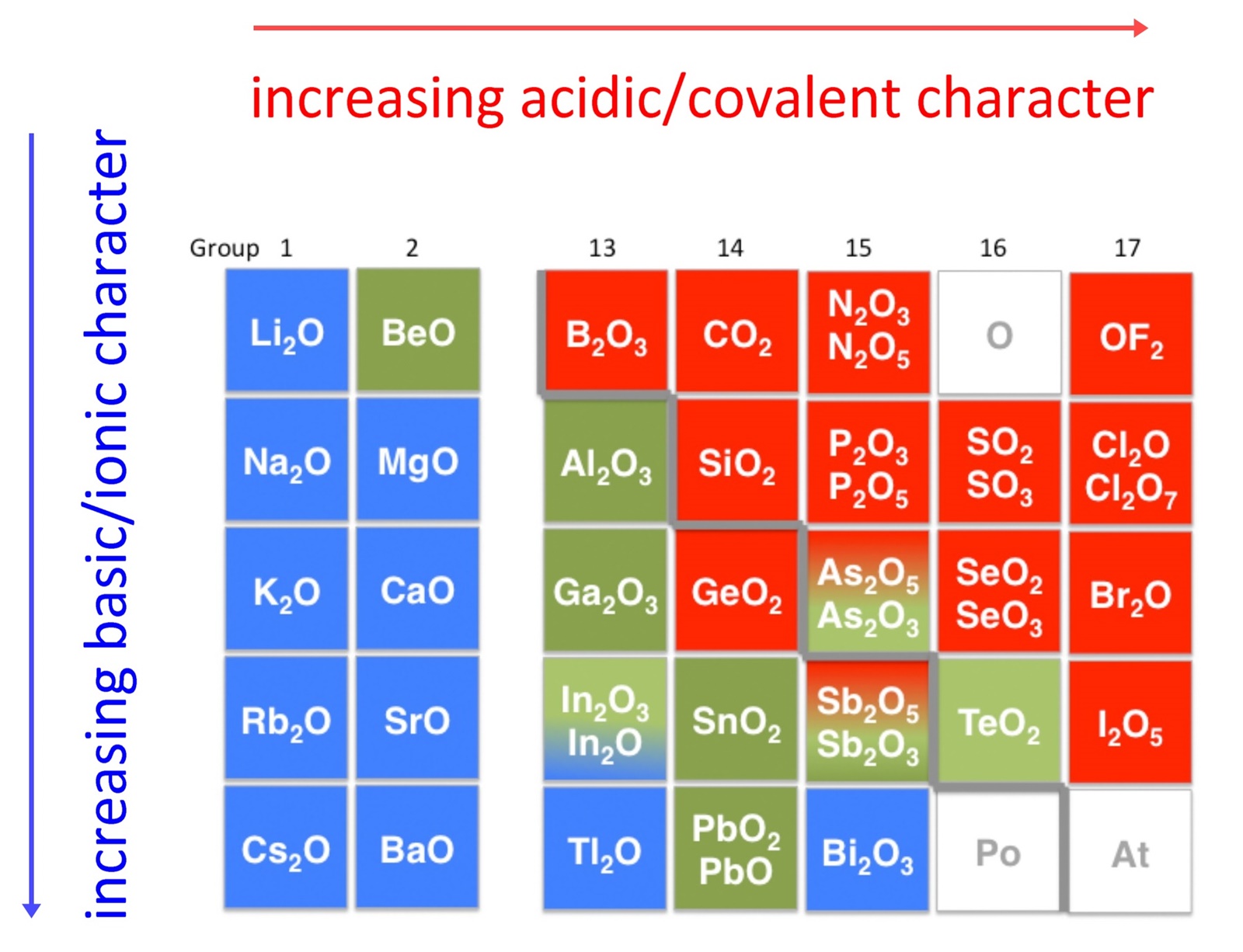Which Elements Can Form Acidic Compounds - Which property do metalloids share with nonmetals? Which property do metalloids share with nonmetals? There is one other group of compounds that is important to us—acids—and these compounds have interesting chemical properties. Intermediate conductivity and a high melting point. Notable exceptions are carbon monoxide, co, nitrous oxide, n 2 o, and nitric oxide, no. For example, group 17 elements (one group left of the noble gases) form 1− ions; Initially, we will define an acid as an ionic compound of the h + cation dissolved in water. Group 16 elements (two groups left) form 2− ions, and so on. Web which properties are characteristic of metalloids? Web moving from the far right to the left on the periodic table, elements often form anions with a negative charge equal to the number of groups moved left from the noble gases.
Web most of these oxides are acidic, that is, they react with water to form oxyacids. Notable exceptions are carbon monoxide, co, nitrous oxide, n 2 o, and nitric oxide, no. Intermediate conductivity and a high melting point. Web moving from the far right to the left on the periodic table, elements often form anions with a negative charge equal to the number of groups moved left from the noble gases. Which property do metalloids share with nonmetals? Group 16 elements (two groups left) form 2− ions, and so on. Web which properties are characteristic of metalloids? There is one other group of compounds that is important to us—acids—and these compounds have interesting chemical properties. Initially, we will define an acid as an ionic compound of the h + cation dissolved in water. Web expand/collapse global location. Which property do metalloids share with nonmetals? For example, group 17 elements (one group left of the noble gases) form 1− ions; Both can react to form acidic compounds.


/common-acids-and-chemical-structures-603645_FINAL-54e6b0b3351b49dbb6cef54fd4817404.png)






